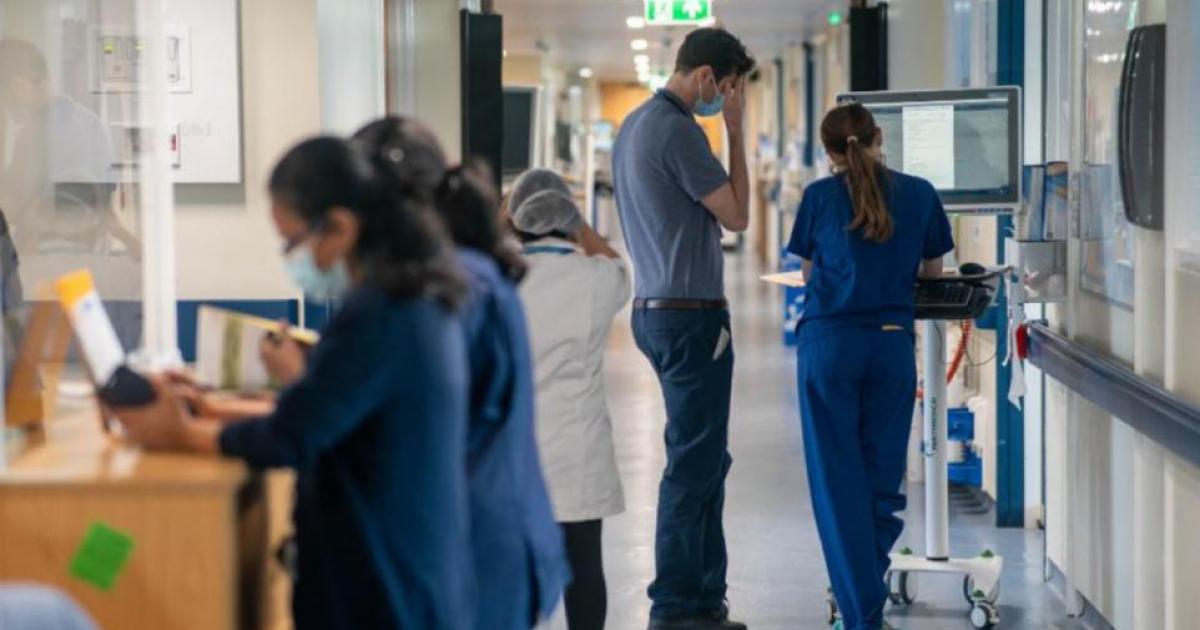An investigation by Channel 4 Fact-Check revealed eight per cent fewer nurses were employed at Royal Blackburn Hospital than is planned, and six per cent fewer at Burnley General Hospital.
The figures are based on nurse fill rate data from daytime shifts. They are averages across all wards for which data were available from January 2023 to November 2024.
At Royal Blackburn, the eight per cent also related to critical care, which includes intensive care and high dependency units.
However, East Lancashire Hospitals NHS Trust, which runs the two hospitals, said the data in the investigation is out of date, and at the moment, there are very few vacancies at the Trust, which has been the case for several months.
This was shown earlier this year when student nurses working at ELHT were told they would not be guaranteed a job on graduating.
Jane Pemberton, Deputy Chief Nurse at ELHT, said: “The data being highlighted is out of date – at the moment there are very few nursing vacancies at the trust and that’s been the case for several months.
“We work hard to ensure we not only recruit the best teams possible, but that we keep them here at the Trust to provide the very best care to our communities.
“Nursing is a fantastic career, filled with opportunity and a great sense of fulfilment and pride.
“We would encourage everyone to look for opportunities on our website as we would love to develop more local talent when roles arise.”
The trust said that successful recruitment and limited vacancies meant not all students would be offered a position, but it was working hard to maximise the number of nurses it took on.
It comes amid major financial pressures on the trust, which needs to make millions in savings and scrapped its free shuttle bus between hospitals as one money-saving measure.
Explaining the reason for so many missing nurses last year, Professor Peter Griffiths, an expert in health services, told Channel 4: “There are probably multiple issues, but at the heart of the problem is that we have a major shortage of nurses.
“For many years, we have trained fewer nurses than we needed and have relied on migrant nurses to make up for the shortfalls.
“As the size of the gap grows, that becomes harder and harder to do.”
In December, the trust was told it needed to cut costs “with immediate effect” after overspending £26 million in 2024.
Savings included a freeze on recruitment, with the cash crisis referred to as a “major incident similar to their response to Covid”.
Other cost-saving measures have included an end to all non-essential spending and scrapping the free shuttle bus, which took patients between Royal Blackburn and Burnley General Hospitals, and has since been replaced by a paid service run by a private operator.
Board members at ELHT were told in May to find an addition £15m worth of savings so it could break even in the upcoming financial year.
READ MORE: Hospitals trust must find £15m in extra ‘savings’
READ MORE: Health trust issues statement after Alcohol Care Service to end due to funding issues
A spokesperson for NHS England said: “Safe staffing is a priority for the NHS and the number of nurses – and midwives – working in the health service has reached its highest level ever, with improved retention and significantly fewer vacancies, but we know there is more to do.
“All NHS trusts should ensure suitable nursing and midwifery expertise is in place at all times to deliver timely, high-quality, safe and personalised care which meets their patients’ needs.”
